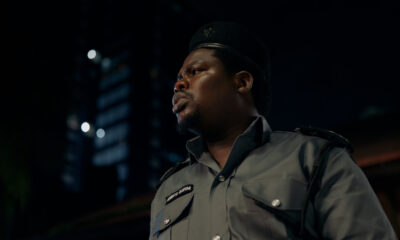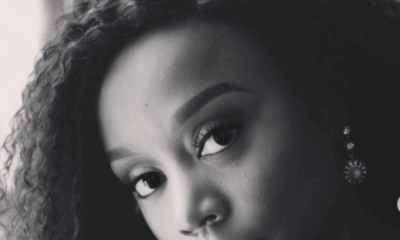Features
What Has Mike Afolarin Learned From Working on Freedom Way?
I’m still trying to understand how I don’t have $1 million yet despite the steeze and talent.

Freedom Way is a movie that explores the harsh realities faced by Nigerians, young people especially. From a doctor battling outdated government policies to youths constantly harassed by the police and threatened by unfavourable laws, the film captures the everyday struggles endured in the pursuit of dreams. The movie explores daily survival, resistance, and hope, offering a mirror to the systemic issues Nigerians face.
Beyond the accolades the movie has earned globally—including winning Best Movie at the most recent AMVCAs—it’s equally compelling to examine how the film has impacted the very actors who brought its stories to life. What did stepping into these characters reveal to them about the country they live in? How did portraying these layered, often painful realities shift their perspectives? As vessels for these truths, the actors carry not just the weight of performance but also the burden of reflection.
Mike Afolarin played Edi, a young lawyer disillusioned by the Nigerian system, who is caught between his growing desire to leave the country and the harsh realities affecting him at home. Mike tells us what working on Freedom Way has taught him and what he hopes the audience sees when they watch his character.

Credit: Bluhouse Studios
How important is it for you to be part of a project that especially challenges social injustice?
I have always wanted to create art that speaks to the realities of my audience, because I think it is the most relatable type of storytelling. So I’m really honoured to be able to use my platform and my work to raise awareness and spark up real conversations and hopefully, eventually, positive change in our society. I am a Nigerian, and I am not excluded from the struggles of most Nigerians. I have been harassed several times by the armed uniform men, and sometimes you don’t even recognise the uniforms, and they won’t even show you an ID or a badge to identify themselves. Sadly, many of us go through this daily, so it was really important for me to be a part of this type of project that helps people see these issues a little differently, and let people feel seen in their pain. Using my medium to help people see the truth in these issues is a blessing I do not take for granted, because this is the kind of legacy that I want to be a part of.
A few actors have mentioned how working on a film sometimes reveals something they didn’t previously know. Considering the kind of movie that Freedom Way is, and your role in it, what have you learned from working on Freedom Way?
Working on Freedom Way made me reflect on stories I hadn’t really paid attention to before now, and even some of the experiences I have had as a Nigerian living in Nigeria. I came out of this experience with a deeper level of understanding and empathy, for Nigerians, how most of us are basically victims of the system, and everyone’s past dictates the way they operate, and the decisions they make, most Nigerians are in survival mode right now, and I totally understand the people who have chosen to Japa. You know what they say about leaving to fight another day; that might not correlate exactly, but you get the point.
When people watch Freedom Way, what do you particularly hope that people take out from your role? What is that specific message you hope people will derive from watching your character, Edi?
While Edi doesn’t show up as often, whenever he comes on, he challenges archaic norms by asking the right questions. I hope people learn to ask the right questions, no matter how difficult.

Credit: Bluhouse Studios
How did you get to work on Freedom Way?
For this project, Demi Banwo, a good friend of mine, had recommended me to Blessing Uzzi when she was recasting for the film, and once I read the script, I knew I needed to be a part of this because of the strong theme and how much I could relate to the story. It was easy for me to get into the character because it’s literally my reality as a Nigerian youth, and once I got on set, bonding with the rest of the cast was so easy. The team (led by the director Afolabi Olalekan) was also amazing and vibrant. It was an intense four days of shooting for my character, but we made the most of it, and we created an award-winning film.
Away from Freedom Way or being an actor, when it’s just you alone with yourself, what part of Mike are you still trying to understand?
I’m still trying to understand how I don’t have $1 million yet despite the steeze and talent.
_
Freedom Way is written and produced by Blessing Uzzi and directed by Afolabi Olalekan.






















